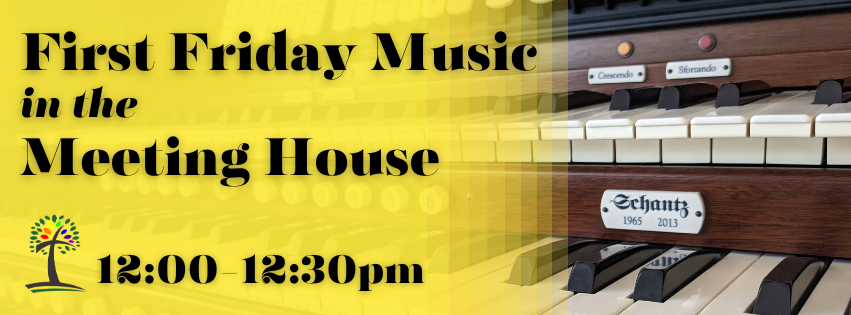
October 2, 2018
“Think on These Things” ~ Sermon for September 30, 2018
For our New Testament reading this morning I chose a passage from Paul’s letter to the Philippians.
Paul is in prison and writing this letter out of love for the church while he is forced to be separated from them.
His words of encouragement speak to us today amidst the world’s tumult. Hear now a reading from Philippians 4:4-9.
Here ends the readingof God’s holy word. May God add to our hearing and understanding, God’s blessing. Amen.
Please pray with me.
Holy Spirit of God, shine your light upon this Word and into our hearts that we may be enlightened with fresh understanding.
May the words of my mouth and the meditations of my heart be acceptable to you, O Lord, my rock and my redeemer. Amen.
Sermon
I chose the passage from Philippians for this morning’s reading not because I am a relentless optimist or a naïve idealist but because I am a hopeful Christian.
In the midst of a world that seems to be spinning out of control I find comfort in Paul’s positive exhortation to his followers.
When I lapse into thinking that life is difficult in 2018, I am reminded that our ancestors in faith lived in a time when death and destruction were the order of the day.
When this letter was written, sometime in the latter half of the first century, the people of Philippi toiled under Roman occupation.
Living conditions were rough.
Most people were peasant farmers; there were some artisans; and just a few wealthy persons.
Most people lived close to the land, eking out a living from the earth’s seasonal produce.
Most dwelt in small huts, tended a few animals, and had only the barest provisions.
Malnutrition was common.
Infant mortality was rampant.
The average life expectancy was about 40 years.
The fledgling church in Philippi was struggling to establish itself, dealing with issues similar to our churches today almost twenty centuries later.
They were a small counter cultural group calling for justice for the oppressed, care for the marginalized, freedom to worship as they chose.
They were a close-knit community striving to support one another and to spread to good news of the gospel of Jesus Christ.
Paul understood that this was not easy and that the call to discipleship meant hardship for the followers.
He is trying to keep their spirits up from afar while he is imprisoned – yet again – for his beliefs.
Being rooted in God’s steadfast love has provided comfort to believers of many faiths over the centuries.
You’ll remember the anonymous Jewish poem, found on the walls of a concentration camp in Germany, beautifully put to music by Mark Miller in 2012 and sung as our anthem earlier this month:
I believe in the sun, even when it’s not shining.
I believe in love, even when I don’t feel it.
I believe in God, even when God is silent. Anxiety arises, but we pray.
Just like Paul, we can be bolstered and sustained by the fruits of God’s Holy Spirit: joy, thanks, peace, patience, kindness, faithfulness, gentleness.
These are inner conditions that shape and guide our external living.
They are beyond our full understanding, but they give us the protection we need in tough times.
“Let your gentleness be known to everyone.” Somehow we have replaced gentleness with power, prestige and privilege. These have become the attributes we are socialized to show.
But scripture says, “Let your gentleness be known to everyone.”
Paul’s use of the word “contentment” is intriguing.
One commentator pointed out that Paul is not referring to the ability to be happy wherever we are. Rather he is referring to “having all the resources you need to measure up to what you have to deal with.”
Thesecret to Paul’s contentment is his confidence that through his union with Christ he receives strength to cope with his difficult circumstances: “I can do all this through him who gives me strength.”
He personally exemplifies that kind of contentment that calls us to live the same way.
He is encouraging his followers to rejoice in the love that God has for us, in the fruits of the spirit that sustain us.
He is reiterating Jesus’ call to us to destroy the parts of our lives that are not gospel.
To tear down what is not good news.
To give up the parts that don’t stand for truth, love, justice, and beauty.
When we do that, Jesus promises and Paul reiterates, we will have saved our lives by losing the parts that are killing us – and we will thrive as we live with what’s left.
Richard Rohr reflects, “If we understand God as Trinity—the fountain fullness of outflowing love, relationship itself—there is no theological possibility of any hatred or vengeance in God.
Divinity, which is revealed as Love Itself, will always eventually win.
We are all saved by mercy.
Knowing this ahead of time gives us courage, so we don’t need to live out of fear, but from an endlessly available love.”
This outpouring of love is our call as Christians today.
The ability to focus on what is good in our lives and to resist being pulled into the mire of negativity.
Our own experience of God’s love is meant to motivate us to share that love with others.
It is in this sharing of love that we find the joy that Paul describes.
I had an opportunity last week to participate in a seminar on Appreciative Inquiryat Champlain College.
Appreciative Inquiry, as I’ve mentioned in the past, is an approach to organizational development that perhaps unwittingly, incorporates Paul’s theory of contentment and joy by focusing on what is good in an organization, rather than dwelling on problems to be solved.
The focus is on possibilities rather than problems.
I spent three full days with a group of professionals from around the world studying the ways that we could bring this approach to our own organizations.
The heart of Appreciative Inquiry is listening to people’s stories.
This focus on listening and honoring other people’s stories is at the heart of our current cultural conflict.
Trust is the key ingredient necessary for creating an environment that nurtures creativity.
Without trust we are not a community.
Without trust we are simply a gathering of self-centered people seeking personal satisfaction.
I read a beautiful quote this week that said “Wherever I turn I see the face of God.”
The AI approach starts with the appreciative interview.
Deep listening and mutual respect are the hallmarks.
Whether applied to organizations or individuals it always starts with asking people the following questions about their work or themselves…I have adapted them for our church:
- Describe a time in your church that you consider a highpoint experience, a time when you were most engaged and felt alive and vibrant.
- Without being modest, tell me what it is that you most value about yourself and your church.
- What are the core factors that give life to your church when it is at its best?
- Imagine our church ten years from now, when everything is just as you always wished it could be. What is different? How have you contributed to this dream church?
Let’s focus on what is good in our lives and our church.
Let’s talk about this over the next few weeks.
Ask one another these questions.
Discuss this at coffee hour and in your committee meetings.
I want to close with a story.
Earlier this month I attended the monthly gathering of our Association of 16 UCC churches in Northwest Ct.
Each month active and retired clergy come together to share lunch and provide support to one another.
One of the older members has been quite ill for the past year and has been absent from our gatherings.
He was able to attend on Thursday, the first time many of us had seen him in over a year.
In the midst of our lunchtime conversation he turned to our moderator and said
“I want to let you know how much it meant to me when you called me in the hospital. I was at my lowest point, gravely ill, afraid of dying and you called and offered a prayer. You said ‘I love you.’ That stayed with me. I felt it. I felt God’s presence in that moment.”
I want you all to know how important it is to say ‘I love you’ to people.
This is the gospel.
This is what we are called to do.”
My friends, this is what Paul is asking his followers in Philippi to do.
This is what Jesus asks us to do.
To take the unconditional love of God and share it with others.
To go into the public square or the hospital room or the board meeting and to “Rejoice in the Lord always and let your gentleness be known to everyone.”
So as you go out into the world this week carry Paul’s words in your heart:
“Whatever is true, whatever is honorable, whatever is just, whatever is pure, whatever is pleasing, whatever is commendable, if there is any excellence and if there is anything worthy of praise, think about these things and may the God of peace be with you.
Amen.

